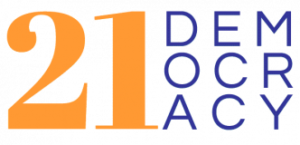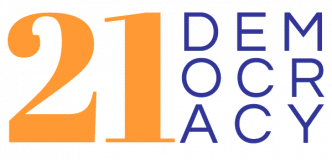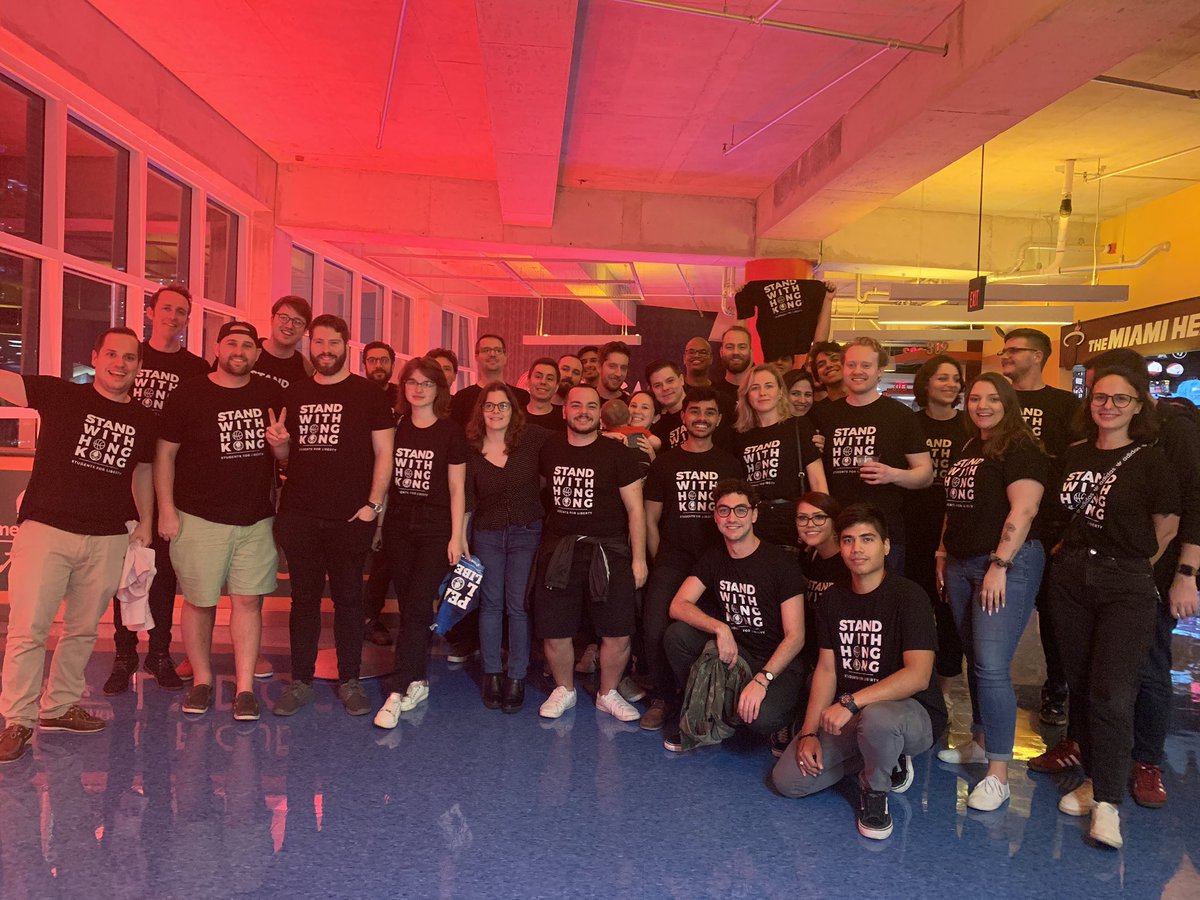Conspiracy theories as counter-narratives: Should democracies adapt to disinformation?
A Russian-linked operation aimed at dividing Western allies spread disinformation on social media for three years, according to a new analysis, Bloomberg reports:
Hundreds of accounts on multiple internet platforms amplified 44 narratives in at least six languages over the course of the effort, which targeted relationships between the U.S. and U.K, as well as the U.S. and Germany, among other Western allies, according to a report released Tuesday by Graphika, a company that uses artificial intelligence to map and analyze information on social media.
The disinformation effort ran from October 2016 to October 2019 and was part of a broader, Russian-based operation known as “Secondary Infektion,” according to Graphika. Facebook Inc. and Reddit have previously removed accounts related to the operation.
One of the outlets that ran with the story, Begemot (“hippopotamus” in Russian), is “full-fledged Kremlin media,” said Marcel H. Van Herpen, director of the pro-European Union Cicero Foundation and the author of several books about propaganda and modern Russia, including Putin’s Propaganda Machine.
Experts say a recent trial in Italy, featuring the inclusion of two videos from Russia Today, plus a report on the website Russkaya Vesna that the Ukrainian government said was false, raised questions about the extent to which fake news, after infiltrating the West’s news media and elections, is now penetrating its courts, The New York Times reports.
“Contamination is by its nature expansive,” said Luciano Floridi, a professor of philosophy and the ethics of information at Oxford who has studied the effects of disinformation. And it can easily spread from media and politics to the judiciary, he added.
Taiwan is ramping up efforts ahead of a Jan. 11 election to combat fake news and disinformation that the government says China is bombarding the island with to undermine its democracy, Reuters reports:
Taiwan, which holds presidential and legislative elections on Jan. 11, says it is particularly vulnerable to influence-peddling by its giant, autocratic neighbor China, which claims Taiwan as its own territory, to be brought under Beijing’s rule by force if need be.
“Taiwan is a democratic, open society. They are using our freedom and openness, bringing in news that is not beneficial to the government,” Chiu Chui-cheng, deputy head of Taiwan’s Mainland Affairs Council, told Reuters, referring to China. “They are seeking to confuse the perception of people. It’s a perception war,” he said. “Mainland China uses organizations in Taiwan to help disseminate fake news.”
Conspiracy theories are used as counter-narratives to confuse the actual nature of events and, in doing so, push a particular ideological view of the world, notes Philip Seargeant, Senior Lecturer in Applied Linguistics at the UK’s Open University:
It’s worth noting that all explanations operate as a type of narrative. A basic dramatic narrative has three steps to it: (1) a person embarks upon a (2) journey into a hostile environment which (3) ultimately leads to self-knowledge. This same basic structure applies to explanations: (1) you want to discover some information; (2) you find a way of discovering it; and (3) your world is changed as a result.
But, as recent research I’ve been doing shows, there are several ways in which conspiracy theories draw directly on elements of storytelling that are found in fiction rather than factual narratives, he writes for The Conversation.
A new initiative aimed at countering the influence operations of authoritarian regimes was announced today.

The goal of 21Democracy is to highlight the risks for consumer choice, privacy, human rights, national security, and intellectual property in the light of rising authoritarianism across the globe, the Consumer Choice Center reports.
“The narrative of authoritarian regimes unduly influencing consumers and policies in liberal democracies is ongoing and we must be persistent in opposing it where possible,” said Yaël Ossowski, deputy director of the D.C.-based Center. “Whether it’s the actions of Putin’s Russia or the Chinese Communist Party, we cannot compromise the underpinnings of our liberal democratic systems in the face of authoritarian regimes.”
While governments and other institutions are making adaptations in the areas of strategic communications and public diplomacy, they can also adapt to disinformation by providing resources to independent media and civil society pursuing these and other innovative means of reaching and informing audiences, adds Dean Jackson, program officer for research & conferences at the National Endowment for Democracy’s International Forum for Democratic Studies:
They can also explore ways to fortify independent media against the tempestuous environment for media sustainability, including capacity-building partnerships for disinformation-focused efforts, more long-term fellowships for investigative journalists, and increased public support for local news media. It is crucial that support for these efforts come in ways that do not
undermine their greatest source of value: independence from political interests. What these adaptations have in common is that none of them are compelling “solutions to disinformation.”
Disinformation, like lying, is not a problem to be solved; it is a tactic that succeeds or fails depending on the circumstances in which it is used, he writes in the latest issue of Public Diplomacy Magazine. Until there are major changes to the environment for news media and political communications, disinformation will continue to be effective.
While Russian interference is well known, American and European institutions are facing greater pressure from the Chinese Communist Party as well, especially surrounding sensitive issues like the Hong Kong protests and the detention of Muslims in Xinjiang, note analysts Nathan Kohlenberg and Thomas Morley.
To respond to this challenge, the National Defense Authorization Act for Fiscal Year 2020, establishes a Social Media Data and Threat Analysis Center under the Director of National Intelligence, they write for the Alliance for Securing Democracy:
The Center will be responsible for coordinating the government-industry partnership that will be required to take on these operations in a comprehensive way. Archiving, analyzing, and, when possible, publishing reports on these influence operations has so far proved to be one of the most effective approaches to hardening American networks and communities against them. By bringing together the perspective that social media companies have on their own networks and users and the threat information possessed by the government, the Threat Analysis Center will provide a mechanism for quickly identifying and disrupting malicious behavior.
In recent years, Slovakia has been referred to as “a pro-European island” in the Visegrad Four, a country whose democracy is stable and whose Euro-optimism remains strong, in particular against the background of recent developments in neighbouring countries, notes the #DemocraCE project‘s Aliaksei Kazharski, a Researcher at the Institute of European Studies and International Relations of the Comenius University in Bratislava and a lecturer at the Department of Security Studies of Prague’s Charles University.
But some Slovak cultural and educational institutions legitimize and promote pro-Kremlin narratives. Free speech risks being undermined by an anti-Western counter-culture anchored in the political and intellectual environments of Slovakia, he writes for Visegrad Insight.
From observing Russian attempts to spread influence across Europe we learned that the Kremlin uses a pragmatic or “trans-ideological” approach, opportunistically seeking out partners among both the radical left and the radical right, Kazharski adds. The narratives it chooses to promote thus depend on the context and can very well contradict each other.
Consumer Choice Center Launches 21Democracy Project to Counter Authoritarian Influence


Consumer Choice Center Launches 21Democracy Project to Counter Authoritarian Influence
Washington, D.C. – Today the Consumer Choice Center is announcing a new initiative aimed at countering the influence of authoritarian regimes on consumers around the world.
The goal of 21Democracy is to highlight the risks for consumer choice, privacy, human rights, national security, and intellectual property in the light of rising authoritarianism across the globe.
“The narrative of authoritarian regimes unduly influencing consumers and policies in liberal democracies is ongoing and we must be persistent in opposing it where possible,” said Yaël Ossowski, deputy director of the D.C.-based Consumer Choice Center.
“Whether it’s the actions of Putin’s Russia or the Chinese Communist Party, we cannot compromise the underpinnings of our liberal democratic systems in the face of authoritarian regimes.”
Articles on this theme have already been published in Politico EU and La Tribune.
Specifically, the Consumer Choice Center is deeply concerned about the threat the Communist Party of China (CPC) poses to consumers, particularly invasions of their privacy and intellectual rights.
Too many western politicians and media figures have turned a blind eye to the threat that some Chinese companies, often de facto controlled by the Communist Party, pose to their constituents.
While we acknowledge the importance of global trade as a driver for consumer choice and prosperity, we also see the risk of this principle being hijacked by bad players. (Self-)Censorship in western movie productions and 5G networks being controlled by an authoritarian surveillance state are just two worrisome examples.
Liberal democracies such as the EU, Canada, and the United States need to find a common approach to protect citizens from the rising influence stemming from authoritarian players such as communist China.
21Democracy aims to serve as a networking, awareness, and activation platform for combatting this threat to freedom. We will speak up when others stay silent, we build bridges between policymakers, business leaders, and government from liberal democracies, and we will lobby for policies that preserve freedom and individual liberties.
To begin these efforts, the Consumer Choice Center joined activists from Students For Liberty in Miami at the Atlanta Hawks vs. Miami Heat game last week to protest the NBA’s silencing of dissent of its athletes and coaches when it comes to the ongoing protests in Hong Kong.
They chanted in solidarity with the pro-democracy protesters in Hong Kong and spoke with fellow attendees to disapprove of the league’s position on political dissent in Hong Kong.

More information about 21Democracy can be found on the website 21Democracy.com.
###
The Consumer Choice Center is the consumer advocacy group supporting lifestyle freedom, innovation, privacy, science, and consumer choice.
We represent consumers in over 100 countries across the globe and closely monitor regulatory trends in Ottawa, Washington, Brussels, Geneva and other hotspots of regulation and inform and activate consumers to fight for #ConsumerChoice. Learn more at consumerchoicecenter.org.
L’Europe a besoin de politiques intelligentes pour combattre les régimes autoritaires
OPINION. L’Union européenne est confrontée à une politique active d’influence militaire, commerciale, numérique et technologique de pays menée par des régimes autoritaires comme la Chine et la Russie. Le cas de l’Ukraine ou l’implantation de la 5G par Huawei en sont des exemples. Il est nécessaire que les démocraties libérales telles que l’UE et les États-Unis contrent cette politique en utilisant les principes de l’Etat de droit. Par Yaël Ossowski, Fred Roeder et Luca Bertoletti (*).
Pendant des décennies, la stabilité politique, la croissance économique et la paix ont été indispensables pour faire de l’Europe un continent prospère et libre.
Les institutions de l’Union européenne ainsi que les différents États membres ont été à la tête de ces efforts, en libéralisant le commerce et en ouvrant les marchés pour que les consommateurs et les citoyens soient beaucoup mieux lotis. Une coopération et des échanges accrus ont grandement amélioré la vie de millions de personnes.
Questions clés
Malgré l’ampleur de ces efforts, il reste des questions clés qui devraient tous nous préoccuper en tant que citoyens de pays démocratiques. Le spectre des régimes autoritaires est encore bien réel en Europe, comme en témoignent les mouvements militaires effrontés. Un autre exemple est les influences numériques et technologiques sophistiquées dans nos infrastructures, ainsi que nos établissements politiques.
Au Hong Kong, l’État autoritaire croissant de la Chine recourt à la violence et à l’intimidation pour réprimer des manifestations découlant d’un projet de loi sur l’extradition. L’existence de camps de rééducation chinois pour un million d’Ouïghours, la minorité musulmane, a longtemps été niée, mais elle est maintenant reconnue et couverte dans la presse grand public, comme le New York Times, après des années de campagnes menées par des groupes de défense des droits de la personne.
Les vastes capacités de surveillance de l’État chinois, bien connues de sa population nationale, commencent à avoir un impact sur les citoyens européens. Ceci est une tendance inquiétante.
Salve d’ouverture
Compte tenu de l’influence économique croissante de la Chine en Europe, ces faits doivent être revus à mesure que nous mettons en œuvre de nouvelles technologies. Le débat sur l’infrastructure 5G et Huawei n’en est que la salve d’ouverture. La protection de la vie privée des consommateurs et la sécurité des données doivent être garanties: les efforts visant à les protéger en tenant compte des préoccupations de sécurité nationale lors de l’approvisionnement en technologies clés, comme l’ont fait le Royaume-Uni, la France et l’UE avec le 5G, semblent être la meilleure approche.
Mais des politiques numériques intelligentes ne seront pas efficaces si elles ne protègent pas nos démocraties des menaces réelles.
Aux frontières de l’Union européenne, l’Ukraine se reconstruit après cinq années d’invasion, de conflit et d’affaiblissement stratégique par son puissant voisin russe. Des milliers d’Ukrainiens ont perdu la vie en défendant leur territoire, et la situation reste périlleuse alors que des millions d’anciens citoyens ukrainiens vivent maintenant derrière les frontières russes. C’est souvent oublié. Et il faut tenir compte de l’influence russe dans de nombreux grands partis politiques européens, sans parler des « socialbots » lors des élections.
40% des échanges commerciaux de l’Ukraine liés à l’UE
L’attention renouvelée accordée aux ressources énergétiques et à la position géopolitique de l’Ukraine lors des auditions de destitution du président Donald Trump ne fait qu’accentuer cette tendance, et l’on peut espérer que les pays européens resteront fermes dans leur volonté d’aider le pays qui a déjà aspiré à adhérer à l’UE. L’appui non seulement diplomatique, mais aussi commercial est essentiel à cet égard. Plus de 40 % des échanges commerciaux de l’Ukraine sont directement liés à l’UE, mais ils seront bientôt éclipsés par la Chine.
Des milliers d’entreprises européennes et américaines détiennent des intérêts stratégiques en Ukraine et encore plus d’entreprises ukrainiennes dépendent entièrement de clients européens. Ces relations doivent également persévérer, malgré les menaces de la Russie et de la Chine.
La technologie électrique ukrainienne utilisée dans les conducteurs et les allumages représente près de 285 millions d’euros de commerce avec l’Allemagne, tandis que les exportations allemandes de machines et de voitures sont essentielles pour les consommateurs ukrainiens.
Association entre Chine et Russie
Une autre de ces technologies est le catapultage des aéronefs à bord d’un porte-avions à l’aide d’un moteur à induction électromagnétique. Le président Trump a bizarrement fait sauter cette innovation en déclarant qu’il préférerait les lanceurs à vapeur, qui ont été utilisés pendant des décennies. Cependant, il semble que de nombreux pays européens, dont la France, soient enthousiastes à l’idée d’adopter la nouvelle technologie.
La Chine s’est déjà engagée à utiliser des lanceurs électromagnétiques pour ses futurs porte-avions et s’associe à la Russie pour construire la prochaine génération de navires nucléaires. Cela intervient alors que la Chine est devenue le premier partenaire commercial de l’Ukraine et qu’elle augmente ses investissements sur l’ensemble du continent.
L’Europe va-t-elle se permettre d’être concurrencée ? Quel sera l’impact d’une alliance militaire plus solide entre la Chine et la Russie sur les Européens? Seul l’avenir nous le dira, et nous espérons que nos principes démocratiques nous guideront vers la prospérité et la sécurité en même temps.
Soutien diplomatique
Ce qui reste clair, c’est que les nations européennes doivent mener des politiques intelligentes pour combattre cette montée des régimes autocratiques. Des évaluations minutieuses des importations des technologies, dont la technologie de 5G et autres, seront essentielles, de même qu’un soutien diplomatique.
Les principes démocratiques tels que l’État de droit sont extrêmement importants. Les démocraties libérales telles que l’UE et les États-Unis doivent trouver une approche commune pour protéger les citoyens de l’influence croissante d’acteurs autoritaires comme le régime communiste chinois.
C’est ainsi que nous pouvons continuer à soutenir la démocratie et la prospérité dans le monde entier.
(*) Yaël Ossowski, Fred Roeder et Luca Bertoletti sont directeurs de 21Democracy, un projet de l’agence pour le Choix du Consommateur.



